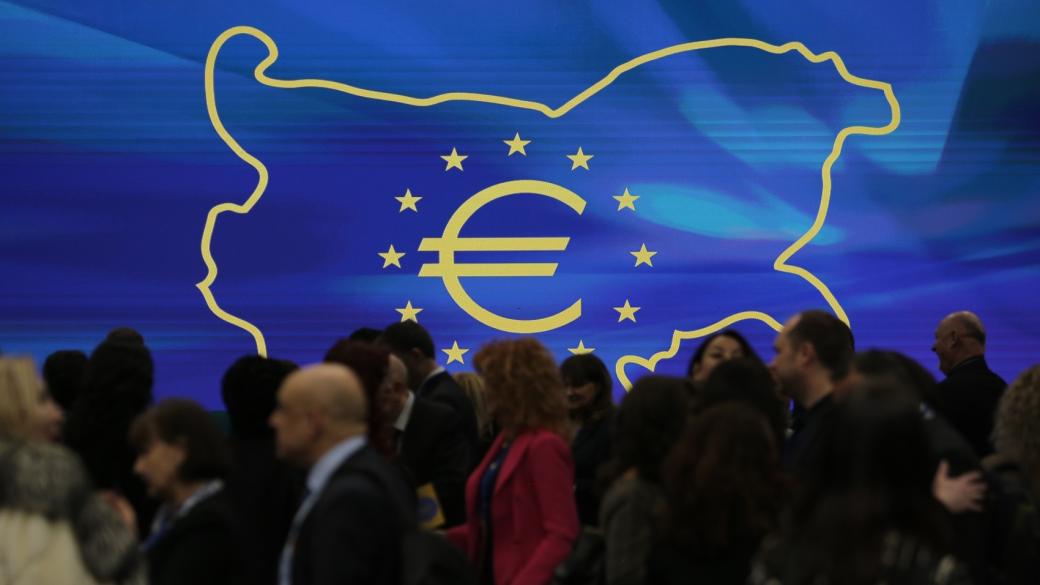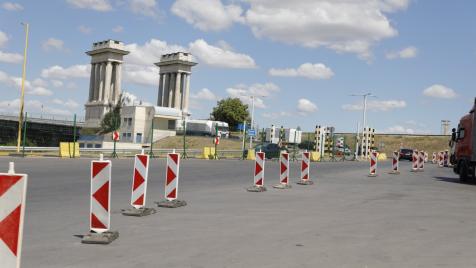Inflation in Bulgaria is only 1 point away from the permissible rate for the Eurozone
Despite this improvement, the realistic date for joining the currency union is 1 January 2026

© ECONOMIC.BG / BTA
Inflation in Bulgaria continues to inch closer towards the permissible limits for Eurozone admission. At the end of September, the country’s indicator was only 1 percentage point away from the target. This is visible from the data on the average annual inflation for the period October 2023 - September 2024 of the European Statistical Office (Eurostat), which is the indicator used by the ECB and the European Commission.
According to the Bulgarian Ministry of Finance, the country will be able to meet the Maastricht requirements by the end of the year, but analysts predict that this will happen only at the beginning of 2025.
Thus, the target date of July 1, 2025, set by the Bulgarian parliament, seems unattainable - as Finance Minister Lyudmila Petkova had already warned in the summer. It is increasingly clear that the euro adoption will likely happen on January 1, 2026, and rating agencies such as Fitch note that if the process fails, Bulgaria's credit rating could be reduced, which would mean a reputation deterioration and an increase in the cost of financing.
The annual average harmonized index of consumer prices (HICP) reached 3.4% in Bulgaria.
For comparison, in the three EU member states with the lowest inflation – Finland, Denmark and Italy – the average index for the same period was 0.93%. As a rule, the EU allows inflation in the candidate country to be at most 1.5 points above the average for the top three countries. To meet the criteria, the average HIPC in Bulgaria must be 2.43%.
At the beginning of the year, Bulgarian inflation was 3-4 points above the permissible limit, which means that there has been a significant improvement.
Country specifics
In its report from June, the European Central Bank excluded Finland from the accounts, due to "exceptional factors". If, in the accounts, we now again exclude that country and replace it with Lithuania, the permissible inflation becomes 2.5%, or 0.9 points below the values in Bulgaria.
In its more favorable report for Bulgaria, the European Commission excluded all three countries with the lowest inflation in June - Finland, Denmark and Belgium - due to "country-specific factors" and because they "deviated significantly from the average for the Eurozone".
If we now exclude Finland and Denmark from the estimates to include Lithuania and Latvia, the permissible level becomes 2.6%, or 0.8 points below the values for inflation in Bulgaria.
Also in June, the convergent reports of the two financial institutions diverged for the first time in the history of the monetary union on the criterion of price stability. Analysts highlighted the ECB's more technocratic approach, while the European Commission introduces a political element in its actions. However, the final decision rests with the Commission and the Eurozone countries.
A check by Economic.bg shows that the last time inflation in Bulgaria was within the limits for entry into the Eurozone was just before and at the beginning of the pandemic when Vladislav Goranov was the finance minister. Back then Bulgaria was admitted to the currency exchange mechanism (ERM-2), the so-called "waiting room of the Eurozone".
Apart from the inflation considerations, Bulgaria has another obstacle to overcome on the way to the Eurozone – its inclusion on the FATF's money laundering list as a jurisdiction with strategic weaknesses in terms of prevention of that criminal practice.
Translated by Tzvetozar Vincent Iolov

 Antoniya Simova
Antoniya Simova 




